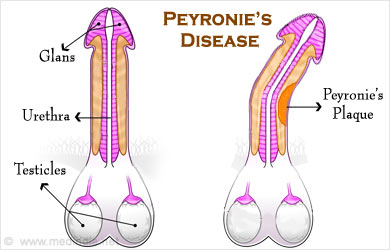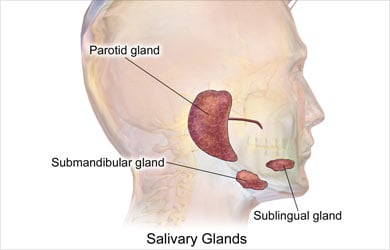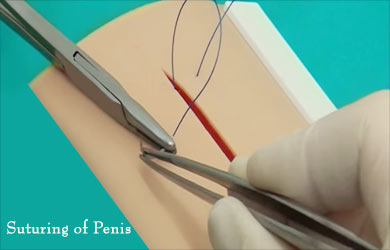- Peyronie's disease - (https://www.betterhealth.vic.gov.au/health/ConditionsAndTreatments/peyronies-disease)
- Peyronie's disease Overview - (https://www.mayoclinic.org/diseases-conditions/peyronies-disease/symptoms-causes/syc-20353468)
- What is Peyronie's Disease? - (https://www.urologyhealth.org/urologic-conditions/peyronies-disease?article=115)
What is Peyronie’s Disease?
Men’s penises vary in length and often present a curved erection which is normal. However, Peyronie’s disease is a condition which causes curved, painful erections due to formation of scar tissue (plaque) inside the penis. This leads to difficulties in sexual intercourse and affects the sexual life of men.

Peyronie’s disease was named after the French surgeon François Gigot de la Peyronie who first described it in 1743.
Peyronie’s disease can be found in up to 1% to 23% of all men in the age group 40-70. This disease is rare in young men but many men in their 30’s present with symptoms. The actual rates of prevalence may be higher because of not reporting the disease either due to people’s embarrassment or physicians not reporting.
What are the Symptoms of Peyronie’s Disease?
Symptoms of Peyronie’s disease can be mild, moderate or severe. Symptoms may appear suddenly or progress slowly over time.
- Painful erections – causing discomfort.
- Soft erections – inability to get or sustain an erection during sexual intercourse.
- Penile penetration – difficulty in erections interfere in penile penetration during sexual intercourse.
- Lumps in the penis – the scar tissue which causes Peyronie’s disease leads to hard lumps or hard bands of tissue under the skin of the penis.
- Penile curvature – the penis may bend to one side or curve upward or downward.
- Shortening of the penis – Peyronie’s disease often leads to a shortening of the penile length.
What are the Causes of Peyronie’s Disease?
Some of the causes attributed to Peyronie’s disease include:
- Injury to the penis – the penis may get injured during vigorous physical activities like sex, sports, accidents or other traumatic injuries. Injuries usually result in the immune system releasing substances that form scar tissue (for healing). This scar tissue forms a plaque inside the penis which leads to Peyronie’s disease.
- Autoimmune disorders – certain autoimmune disorders can cause Peyronie’s disease. Men with autoimmune disorders develop Peyronie’s disease when the immune system attacks the cells in the penis. Some of the autoimmune disorders causing Peyronie’s disease are Lupus (inflammation in various parts of the body including skin, joints and major organs), Sjögren’s syndrome (inflammation in the tear and salivary glands) and Behcet’s syndrome (inflammation in the blood vessels).

- Connective tissue disorders – are also known to cause Peyronie’s disease. Connective tissues play a role in connecting tissues and organs in the body. Some of the connective tissue disorders causing Peyronie’s disease include a condition called scleroderma which leads to abnormal thickening of connective tissues making it hard and causing swelling and pain in muscles and joints.
What are the Risk Factors of Peyronie’s Disease?
Some of the risk factors for Peyronie’s disease are:
- Aging – leads to changes in the elasticity of tissues in the penis making it more prone to injuries. Age also decreases rate of healing of injuries.
- Family history – a person’s chances of getting Peyronie’s disease is higher if his father or brother has the condition.
What are the Complications of Peyronie’s Disease?
Some of the complications include:
- Erectile dysfunction – inability to get or maintain an erection.

- Affects sexual intercourse – as the person cannot get or sustain an erection.
- Fathering a child – the condition may cause significant difficulties in fathering a child as it affects the ability for sexual intercourse.
How to Diagnose Peyronie’s Disease?
A urologist is the specialist who will diagnose and treat Peyronie’s disease. The diagnosis is usually made based on:
- Medical and family history – where the doctor will ask the patient about his family medical risks, genetic issues, medical conditions, medications, symptoms and duration of the problem.
- Physical examination – urologists are usually able to diagnose the condition with a physical exam of the penis where he/she will check for lumps and hardening of the tissue. Sometimes the urologist may need to check the penis during an erection. This is done with an injection to induce an erection.
- Imaging – an x-ray and ultrasound may be recommended to get an accurate image of the penis.
How To Treat Peyronie’s Disease?
Non-surgical treatment includes:
- Oral medications
- Vitamin E
- Potassium para-aminobenzoate (Potaba)
- Tamoxifen
- Colchicine
- Acetyl-L-carnitine
- Pentoxifylline

- Topical applications
- Verapamil gel
- Injections
- Verapamil
- Interferon alpha 2b
- Steroids
- Collagenase (Xiaflex)
Non-invasive therapies may be used by the urologist to reduce the scar tissue and decrease the curving of the penis. These therapies include:
- High-intensity, focused ultrasound to break down the plaque.
- High-energy x-rays to break down the plaque.
- Low-intensity, directed electroshock waves to break down the plaque.
- Mechanical traction to stretch and bend the penis to reduce the curving.
- Grafting – where the urologist will cut out the plaque and attach another patch of skin or vein in its place. This will usually straighten the penis and restore the lost length.
- Suturing – the longer side of the penis (the side without the plaque) is sutured to straighten the penis. This procedure might result in shortening of the penis in some cases.

- Implants – where the urologist will implant a device that can cause erection and help maintain a straight erection. However, once the implant has been placed, the device must be used to get an erection.
How to Prevent Peyronie’s Disease?
Certain lifestyle changes can reduce problems with erections associated with Peyronie’s disease.
- Quitting smoking
- Reducing alcohol
- Healthy diet with fresh fruits and vegetables
- Regular exercise
- Avoiding narcotic drugs
Coping with Peyronie's Disease
Peyronie’s disease affects the ability to have a satisfying sexual relationship and causes much stress to sufferers. The best way to cope with the anxieties is to be honest with your sexual partner and explain the condition and the steps you are taking to deal with it medically. You may also seek the support of a counsellor who can help you deal with emotional stress.





